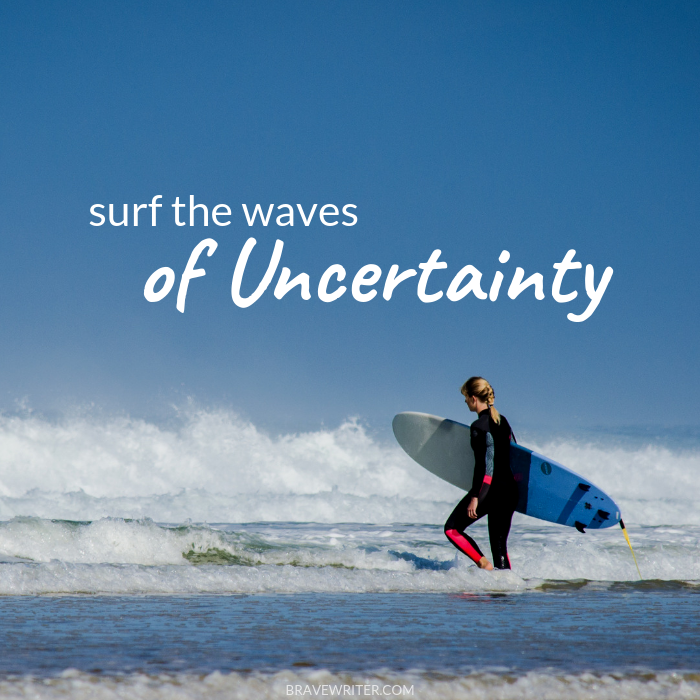The Myth of the “Dream of Constant Okayness”

Pema Chodron writes:
“Our discomfort arises from all our efforts to put ground under our feet, to realize our dream of constant okayness.”
No matter what my worldview has been, no matter how well I work out the right principles (for parenting, the cosmos, home education, self improvement, intimate relationships), I’m repeatedly surprised to find that other factors I haven’t considered interrupt my “dream of constant okayness.” I want control so badly—I want to be assured of outcomes, to be known as conscientious, faithful, intentional, self-aware, and open. I want to know that those in my circle of influence feel heard, valued, trusted, upheld, and supported.
I put all my energy into living that kind of life—the one that is examined, the one worth living.
And still unexpected waves of confusion, complexity, suffering, and pain find their way to me and my loved ones. Even as I try to make peace with the less than ideal, my peace is assaulted again. Even my attempts to “be okay” with not being okay are foiled.
I can’t stay there—even the awareness that it’s important to accept life on its own terms is one that comes and goes. I can’t pin it down and cling to it either.
If life is like that, how much more is something as uncertain as home education?! We are continually
- revising our efforts,
- revisiting old ideas,
- adopting new ones,
- testing curricula and philosophies.
Even as we find a rhythm, someone gets sick or someone ages out of the wonderful plan or we get bored.
The way forward is acceptance of this fractured lifestyle—the one that never quite gets up and running consistently, predictably, with clear results evident to us when we need them.
One way I help myself is to say: “So this erupted and I’m freaking out. To be expected.”
Then I have the full freak out! I don’t try to thwart it—I just feel it, completely, right down to spilling all my anxiety on the most willing party in my life. I get to work meeting the demands of this new moment as best I can. I have to remind myself that I’ve been in a pickle before and have gotten out of it, and that I will again. I also remind myself that no peace is lasting and so here is that moment without peace (which means—huzzah!—that peace will return to overcome this “no peace” place).
The “dream of constant okayness” is the message sold to us in advertising, spirituality, education, and relationships. It’s a myth.
As Pema concludes, we long for “freedom from struggling against the fundamental ambiguity of being human.” Yet in our lived experience, we rarely stay there.
Real life is as unnerving as you experience it to be—which is how it is and is supposed to be. Which is a-okay. Ultimately.


















